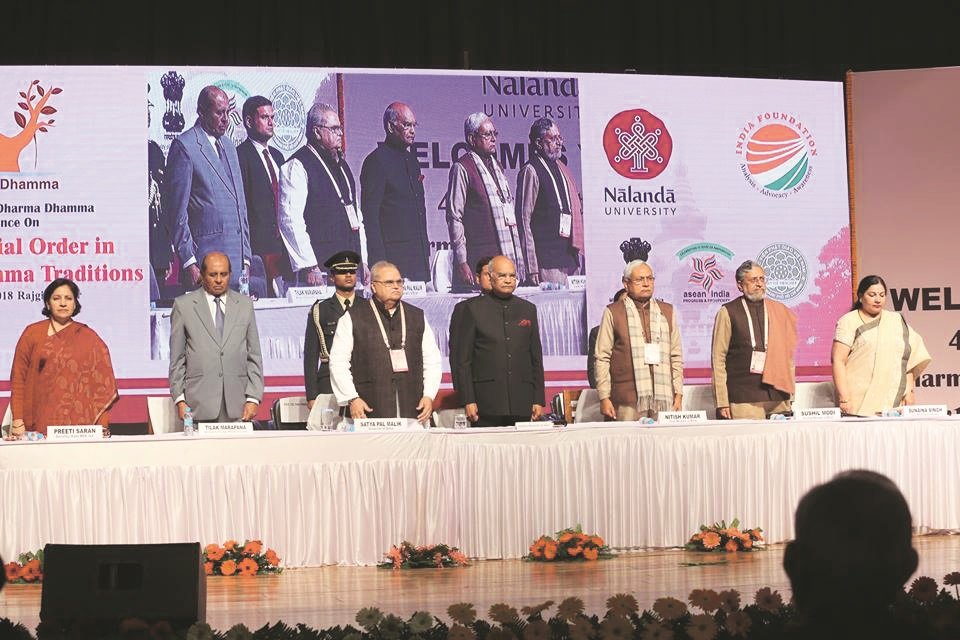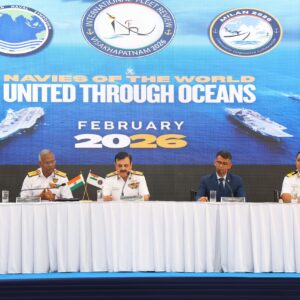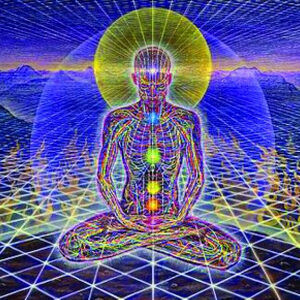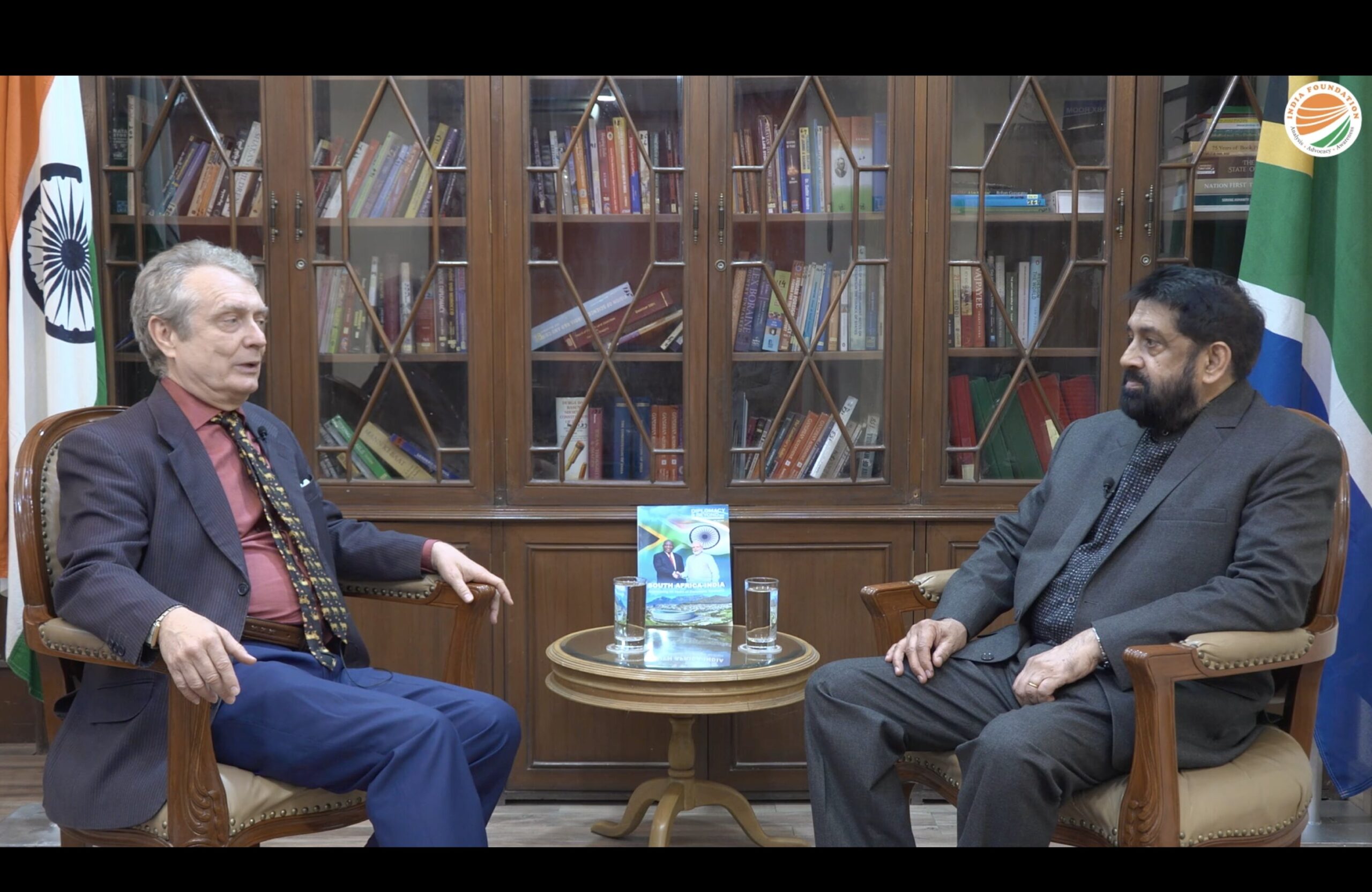Dharma – Dhamma Conference, an annual platform in its fourth edition is an effort by India Foundation to revive the narrative on dharma-dhamma traditions and make them relevant in finding solutions and forming policies for the state in the 21st century. The event was organized by India Foundation in collaboration with Nalanda University, Ministry of External Affairs, Government of India and the Vietnam Buddhist University on 11 to 13 January 2018 at Rajgir, Bihar. The event was organized as part of the commemorative events to celebrate the silver jubilee of ASEAN – Indian Dialogue Partnership.
The theme for 4th Dharma – Dhamma Conference – State and Social Order in Dharma-Dhamma Traditions, aimed at emanating meaningful discourse on applying the values embedded in dharma-dhamma traditions to the practice of statecraft and social order. The Conference also witnessed a paper presentation by eminent and bright scholars on the sub-themes of: State, Governance and Social Order in Dharma Traditions; State and Social Order in Dhamma Traditions; Ecology & Environmental Consciousness in Dharma Dhamma Traditions; Peace & Conflict in Dharma Dhamma Traditions; Dharma Dhamma Traditions in Gandhi, Ambedkar, Lohia and Deen Dayal Upadhayay; Idea of Rashtra (Nation) in Dharma Dhamma Traditions; Buddhism and other Belief Systems; and Traditions and Practices.
Day 1 : January 11, 2018
Inaugural Session
The fourth edition of the Dharma-Dhamma tradition was inaugurated by the President o India Shri Ram Nath Kovind. Present on the occasion were Shri Satya Pal Malik, Governor of Bihar, Shri Tilak Marapanna, Minister of Foreign Affairs, Sri Lanka, Shri Nitish Kumar, Chief Minister of Bihar, Shri Sushil Modi, Deputy Chief Minister of Bihar, Ms. Preeti Singh, Secretary (East), Ministry of External Affairs, Government of India and Prof. Sunaina Singh, Vice-Chancellor, Nalanda University.
Shri Ram Nath Kovind
In his inaugural address the President of India, Shri Ram Nath Kovind said that organising an event of such stature in the historic city of Rajgir, Bihar had brought the twin tradition of Dharma and Dhamma to their home. The historical significance of Dharna and Dhamma is the backbone of celebrating India – ASEAN relationship. While both these traditions maybe diverse, they guide to the same desired goal of ethical conduct and purposeful statecraft. He also said that Nalanda was the embodiment of knowledge and wisdom with international character and so this conference should act not just as a diplomatic platform, but influence the values and statecraft.

Shri Nitish Kumar
The Chief Minister of Bihar, Shri Nitish Kumar proposed the idea of reviving Nalanda as the centre of conflict resolution and Rajgir to be declared as a world heritage site. He said that Rajgir has always been the centre of different traditions and remembered as the land of knowledge, therefore the conference must seek to revive the values of truth, non-violence, love, compassion, peace which have been the foundation of every religion and tradition.
Shri Tilak Marapanna
Shri Tilak Marapanna, Minister of Foreign Affairs, Sri Lanka, highlighted the importance of dharma principles in shaping the society and thus, the conference should be interpreted to seek peace and prosperity based on the twin traditions in the contemporary world. He remarked that Buddhist preachings are important to understand the virtues of government, ensure welfare of people and unite the global audience through spirituality. These fundamental values should be reflected in the current and future policies.
Ms. Preeti Saran
Ms. Preeti Saran, Secretary (East), Ministry of External Affairs, Government of India spoke of the historical linkage between the ASEAN and the revival of Nalanda University to improve regional understanding of culture and history. She said that Nalanda has been the hallmark of internationalism and cultural interconnection. This identity should be utilised by this conference to contribute in knowledge creation which can be used in reduction of conflict and ensuring peace, harmony and cooperation.
Plenary Session – 1
The first plenary session was chaired by Prof. Arvind Sharma, Professor of Comparative Religion, McGill University. The plenary speakers were Prof. Makarand Paranjpe from Jawaharlal Nehru University and Dr. David Frawley, Vedacharya and Padmashree awardee. Dr. David Frawley based the foundation of world on the inner unitary consciousness of dharma and dhamma. He regarded dharma and dhamma to be same in spirit of being universal principles, differing only outwardly as limbs of the society. He highlighted the difference between dharmic civilisation and western civilisation, where the ultimate objective of the former is the direct experience of truth beyond any complex understanding of concepts.
Prof. Paranjpe spoke on ‘Bharat Shakti and Swaraj: Towards 2nd Renaissance’, where he reflected upon the relationship between dharma and statecraft. According to him, dharma is the foundation of social and cultural structure of India and so, India must be reborn for the future of the world. He remarked “When India rises, it is the Sanatan Dharma that rises.” Prof. Arvind Sharma brought about the difference between the terms religion and dharma, emphasising on how much is lost

in the translation. He remarked that the ancient Indian word Dharma did not mean the exclusive idea of religion as seen by the western civilisation and therefore, the eastern concepts of Hinduism, Buddhism, etc should be referred as Dharma and not religion.
Day 2: January 12, 2018
Plenary Session – 2
The second plenary session was chaired by Prof. S.R. Bhatt, Chairman, Indian Council for Philosophical Research. The plenary speakers were Prof. Braj Sinha from University of Saskatchewan; Ven. Tseetsee Luvsandorj from Gandantegchling Monastery, Mongolia; Dr. Frank Ji-Ruey Guo, CEO, Bliss and Wisdom Foundation of Culture and Education, Taiwan and Dr. Madhu Khanna, Professor of Religious Studies and Director of Centre for the Study of Comparative Religion and Civilization, Jamia Millia Islamia University. Prof. Bhatt regraded the concept of dhamma to be the overriding feature of Indian cultural ethos. Describing Asia as Dharma-centric, he advocated the simultaneous need of material possibilities and spiritual enhancement for the holistic progress of the society. He remarked that the pitfall of democracy can be cured by ‘Dharm-o-cracy’.
Dr. Frank Guo spoke on the practice of Buddha Dharma in the society. He regarded health of body, purity of mind and bliss of spirit to be the principles embedded in dharma dhamma traditions which are of prime importance for the peaceful progress and development of any society. Dr. Madhu Khanna spoke on the importance of ‘Eco-Dharma’ mentioned as a concept of Bhumi Sukta in Atharvaveda as being simultaneously ancient and modern. She expressed her concern about the disappearing spirituality of the earth and the need of a paradigm shift from environmental concern to environmental consciousness. Prof. Braj Sinha expressed the importance of Dharma as a tool for looking at a state for the purpose of seeking wisdom. He emphasised on the materialization of Rajdharma as mentioned in the Shanti Parva of Mahabharat and not just the Dandaneeti category of Arthashastra tradition. Ven. Tseetsee Luvsandorj spoke about the ‘Engaged Dharma activity in the modern Mongolian society’. He highlighted the role of NGOs, social work and assistance to targeted group beneficiaries in materializing the dharmic principles.
Plenary Session – 3
The third plenary session was chaired by Mr. Shakti Sinha, Director, Nehru Memorial Museum and Library. The plenary speakers were Ms Sattva Zhang, Secretary General, World Peace & Communication Association; Mr. Say Amnann, Deputy Director General of Religious Affairs, Ministry of Cults and Religion, Kingdom of Cambodia and Mr. Myo Win, Assistant Director, Department of Religious Affairs, Myanmar. Mr. Sinha spoke of the need of rulers to rule in tune with dharmic values and traditions. Ms. Sattva regarded the only way of rescuing the world from crisis is by awakening the mind and following the law of the universe and true human nature. She also highlighted the need to reignite harmony, one of the basic principles in moral doctrine.
Mr. Myo Win expressed the support of the Government of Myanmar to the conference for the noble purpose it seeks to achieve. He said that the dharmic principles of compassion, equanimity, sustainable development, human rights and human development are the values that need to be embraced in the life of individual and the society. Mr. Amnann said that ‘real dharma’ is when social order is upheld at all times, else the weak suffers. He spoke on the Cambodian Buddhism and the significant role it played in the independence movement and community development project. He also highlighted the use of Buddhist meditation technique by psychiatrists which reflects the positive role dharma-dhamma traditions can play on reforming the society.
Plenary Session – 4
The fourth plenary session was chaired by Swami Advayananda, Acharya-in-charge, Chinmaya International Foundation. The plenary speakers were Prof. Venkat Rao from EFLU; Prof. H.P. Gangnegi from Delhi University; Phramaha Boonna Pratumchat from Mahamakut Buddhist University, Thailand and Venerable Heui Kai, Deputy Abbot of Fo Guang Shan Monastery, Taiwan. Swami Advayananda regarded the philosophy of ‘also’ and not the philosophy of ‘only’ as the biggest contribution of the dharma-dhamma tradition. He dissected the word ‘dharma’ to mean root or ‘to support’ and regarded righteous living as the dharma of an individual and law as the dharma of a society.
Prof. Gangnegi spoke of the subtle differences between the Dharma concept of Mahayan Buddhism tradition and Dhamma concept of Thervada Buddhism tradition. He highlighted the need to bridge the gap between the two. He also brought to notice the virtues of Buddhist preaching to regulate society or social order through attendance, finding amicable solutions, honouring traditions, respecting elders, ensuring security and safety of women, etc. Phramaha Boonna Pratumchat explained the way of Dhamma to control the inner circle of mind. He also highlighted the need to meditate in order to improve consciousness, bring purity and ensure harmony in the society.
Venerable Heui Kai equated dharma as the sustainability of the world and sustainability of life. He regarded them as the two sides of the same coin, both being important for survival of the other. Prof. Venkat Rao spoke on the difference between Sva-Dharma and Par-Dharma and the relation between the two. He highlighted the disjuncture between the traditions governing the way of living and the traditions governing the way of education. He also remarked that the concept of power and knowledge have been systematically developed in European context and thus, drawing parallels in India is a futile activity. Instead, there is a need to rethink these concepts in the Indic sense of thought.

Day 3 : January 13, 2018
Plenary Session – 5
The fifth plenary session was chaired by Prof. SP Singh from University of Delhi; Julio Ozan Lavoisier, Philosopher and Writer from Argentina; Ven. Tulku Tsori Rinpoche, Founder and Spiritual Leader, Yogi Tsoru Dechen Rinpoche Foundation, Florida and Mr. Lhagvademchig J., Research Associate, Department of Anthropology and Archeology, Mongolia. Prof. Singh set the tone of the session by quoting C. Rajagopalachari words, ‘India is easiest to govern if appeased to traditions’. He remarked that state must be governed through traditional and civilisational beliefs and values. He said, “Dhamma, as a concept provides organic structure to the life of a society.” Venerable Tulku commented, “Devoting life for dharma is the Tibetan culture and backbone of their society.” He remarked that dharma dhamma values are the antidote to the cyclic nature of samsara. He also drew the convergence in the teachings of Buddha and Krishna to adopt the middle path.
Mr. Lhagvademchig J. spoke about the Chakravartin ideology in Mongolian politics. He commented on the ancient cultural ties between India and Mongolia being reflected in the adaptation of ‘Mongolised’ Sanskrit words. He highlighted the contribution of Indian Buddhist cosmology in framing the Mongolian national identity. He said. “Indian ideology of universal monarch-Chakravartin and incarnation of Buddhist deities had been part of the Mongolian political discourse on rulership, sovereignty, nation and identity.” Mr. Julio Ozan commented on the similarity in the Dharma and Dhamma traditions and said, “Nothing better would happen if these two universal forces could turn the wheel of life together.” He also appreciated the heroic task of inserting the Dharma-Dhamma values into the current reality of statecraft.
Valedictory Session
The valedictory session was graced with the presence of Shri Pema Khandu, Chief Minister of Arunachal Pradesh and Swami Atmapriyananda, Vice Chancellor of Ramakrishna Mission Vivekananda University. Swami Atmapriyananda said that the concept of Dharm and Dhamma was based on the concept of fundamental unity; the traditions are in variety, but interwoven by unity. He said, “Dharma as a concept is untranslatable and interchanging it with ‘religion’ would be a wrong translation.” He also regarded the term ‘sustainability’ as the modern word for Dharma. He commented on the irony of human mind and said, “Good people are not convinced with the power of goodness, but wicked people are convinced with the power of wickedness.” Shri Pema Khandu regarded Dhamma to be the literal correspondence of Dharma, one that makes all activities meaningful. He recognized fewer evils and many good deeds as the two basic attributes of dharma. He remarked that Arunachal Pradesh is an example of a society practising Dhamma traditions with tolerance and social solidarity.
(This article is carried in the print edition of March April 2018 issue of India Foundation Journal.)






thankyou for the excellent roundup. Are the transcripts of the speeches also available?
thanks and namaskar.